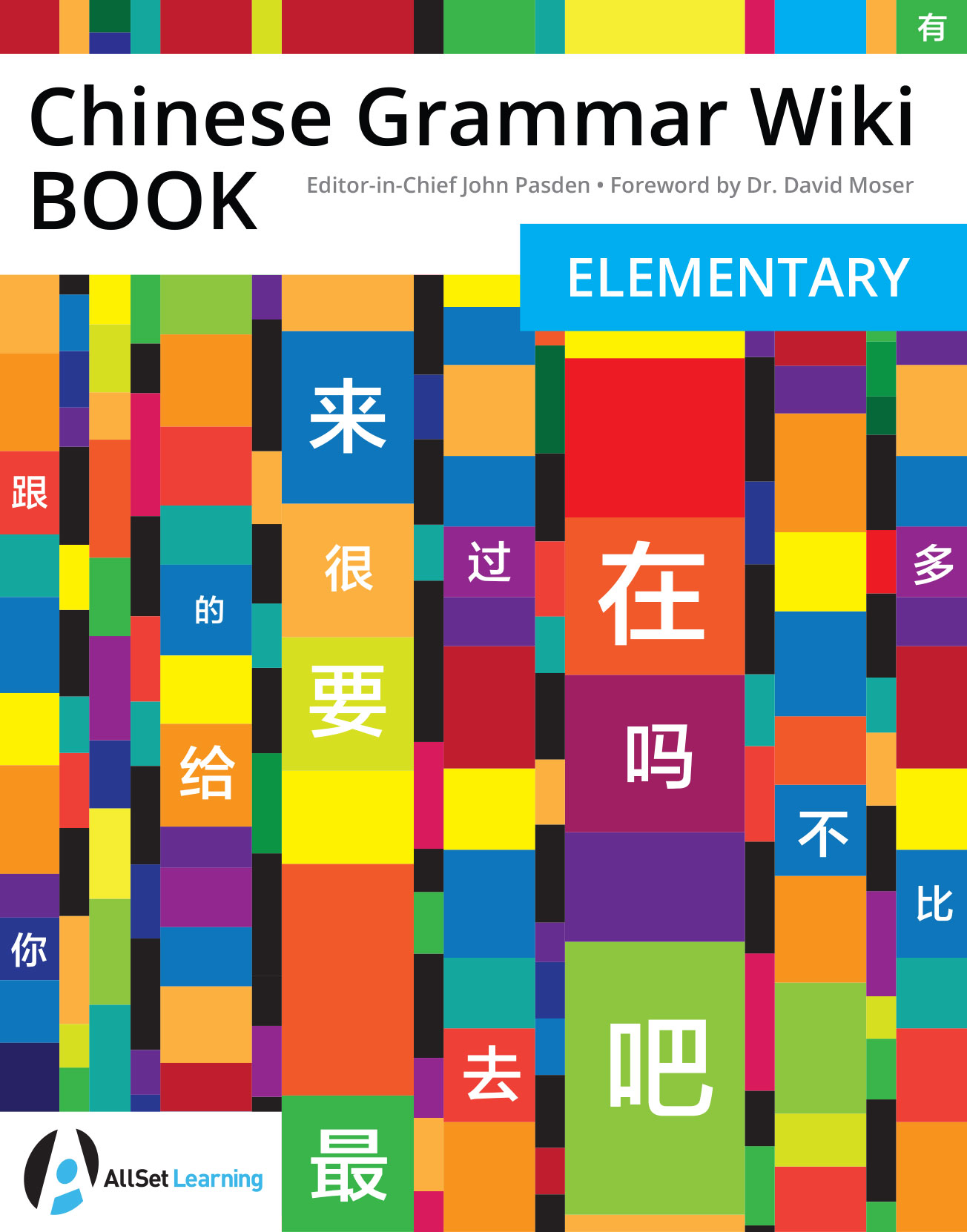Chinese Grammar Pride
The following is a guest post by Spring 2016 intern Callan.If you are in need of inspiration and/or motivation to review your Chinese grammar, look no further!In celebration of the new Chinese Grammar Wiki BOOK (available for download here) we’ve asked a variety of students which grammar patterns they remember learning and are really proud of having mastered (or at least of having gotten the hang of using).
McKennaM
“I think for me the hardest grammar pattern I remember learning was
了
because it can be used in
... it can be
but it can also describe
. Just knowing where to put it in the sentence, how to use it correctly, and how many
了
s to put in the sentence, it can be pretty challenging. I feel like I’ve got a decent handle on it, but still definitely a grammar pattern I can work on.”
–McKenna M., has studied Chinese for 4 years
AmandaG
“I think the most important or useful grammar point for me is probably
. One, it obviously applies to daily life and two, in English we usually put the
因为
part at the end. But in Chinese I feel like it’s important to know that it’s reversed. It actually seems more logical this way: ‘because of this’ and then ‘as a result.’”
–Amanda G., has studied Chinese for 4 years
HattieF
“Learning the
was really hard for me, because there is no equivalent in English. In the beginning, the way I learned grammar was that I would find the English equivalent and just memorize it. So with
把
it was the first time I encountered something that didn’t have an English equivalent and I had to memorize the actual pattern. It was really frustrating for me, and I was like,
I’ll never get this
. Well, then I went to China, and I had a roommate that would use it a lot in her sentences, so I tried to integrate it into my speech more. I don’t know, at some point I was just doing it and not even thinking about it. And now I just do it, so I’m always really proud whenever I think, ‘Oh, I just used
把
a bunch in a conversation!’”
–Hattie F., has studied Chinese for 5 years
HollyS
“There was one time a friend and I were studying, doing vocab words, and the word was
木刻
[wooden carving] and I knew that definition no problem. But then he said something, and I asked him ‘what does
mean?’ I couldn’t figure it out. People kept using it all the time and it was really confusing. He laughed at me for knowing this really advanced vocab word but not knowing this
. So now every time I use it, I’m like, ‘Ha! I also know the simple grammar...’”
–Holly S., has studied Chinese for 5 years
DeltonR
“I’m glad that I know how to use
. I think that it’s important to use, and you can use it talking either formally or informally. I remember back when I first started learning Chinese, I used it incorrectly at first, then continued practicing. Eventually, I used it correctly on a speaking test and have often used it since.”
–Delton R., has studied Chinese for 5 years
BruceB
“The
was unlike anything I had studied in English and was crucial to saying the most basic things in Chinese. I would have to go back to my Chinese 101 book for the first year and a half just to go over that grammar pattern again. It just never clicked. I finally got the hang of it and was using it correctly in my essays and in class. I thought I’d try using it outside of the academic setting. I ordered my usual street food and wanted some extra sauce. The only grammar pattern that came to mind was the
把
structure. The [translated] question sounded like, ‘Can you please put some more of that sauce onto my burrito?’ He looked at me with an amused grin and started chuckling as he put on more of the sauce. I was insecure and thought I said something wrong. I asked him if what I said was wrong and if he could teach me the proper way. He said I sounded uptight and it was too formal of a way to ask. He said in the future just use ‘
来点儿
.’ I still have an uneasy relationship with the
把
structure, but at least I can use it correctly.”
–Bruce B., has studied Chinese for 5 years
TaylorM
“I get really excited when I use the right
. It’s something that I was just finally able to do last semester and now try to do all the time. I know that it’s not the most important thing, but it really makes a difference in your writing and proves that you know what you’re talking about. Knowing that I have mastered something that all Chinese have has really helped to boost my confidence in my ability to learn this language, something that I need on an almost daily basis.”
–Taylor M., has studied Chinese for 5 years
Our
Chinese Grammar Wiki BOOK
is
available for download on Amazon
. Give it a try, and create your own proud grammar moments!








